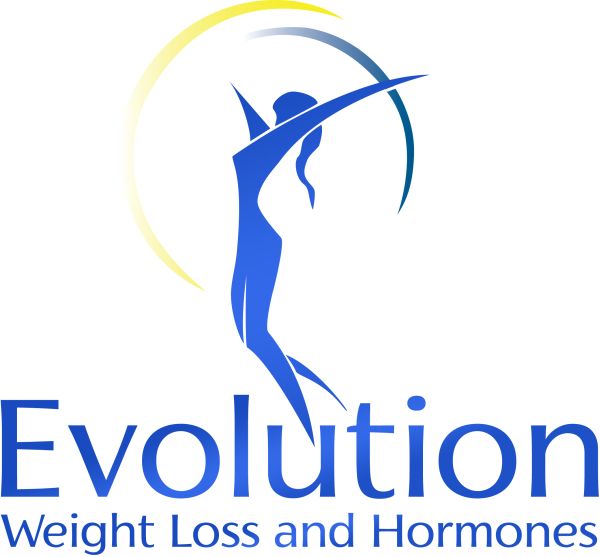Nutritional Support for Depression in Dade City, FL

Depression is a common mood disorder affecting our mental health. Depression makes us feel anxious or helpless in stressful situations, which can lead to more complicated mental and physical health conditions. In the United States alone, millions are affected by moderate to severe depression.
Common treatments for depression include psychotherapy as well as medications including antidepressants. However, these treatments are not without their flaws. Medications introduce the possibility for dependence, while psychotherapy may not be effective for every person or may take significant time to make an impact on a person's symptoms.
Healthy lifestyle changes such as proper diet, nutritional supplementation and exercise can directly impact your depression symptoms by promoting healthy brain activity.
It is important to discuss your health as it pertains to both your physical and mental wellbeing. To schedule a consultation with a healthcare provider in Dade City that specializes in nutritional counseling, call (813) 536-3212 or contact Erin Bolton online.
Your Mood and Diet: How It Works
The food you eat can play a huge role in how you feel. Knowing the interconnected nature of your brain and gut is the first step in preventing inflammatory factors that could be affecting your depression.
Chemicals called neurotransmitters act as your brain's "messengers" and control your body's overall function, including mood, energy levels and appetite. When there are deficits in essential neurotransmitters, your health becomes compromised and you can become depressed.
These neurotransmitters are significantly affected by what you eat. Serotonin, an important neurotransmitter for influencing mood, can be triggered by foods that are high in carbohydrates, hence why it feels good to drown our sorrows with a pint of ice cream. But it is important to not only eat foods that can activate the neurotransmitters that will make you feel good but also to choose foods that will not cause your body physical harm. Many feel-good foods, such as foods high in fat and sugar, can lead to weight gain as well as dangerous inflammation. By choosing a more healthy lifestyle, there are many foods for depression which you can add to your diet that will combat the symptoms associated with depression.
Healthy Foods for Depression
The following list contains foods that help depression, and have a positive impact on your overall health, including brain health, which may in turn improve your emotional health:
-
Foods high in nutrients: Foods that are lacking in nutrients tend to have a drag on our systems, and if your body isn’t working at full capacity, illness might follow. Particularly powerful nutrients include:
- Omega-3 fatty acids: Found in such foods as fish, nuts, seeds and algae oil, omega-3 fatty acids play an important role in healthy brain development and function and thus may help protect against depression.
- B Vitamins: Found in such foods as meat, eggs, seafood, green leafy vegetables, legumes and whole grains, B vitamins (especially B12) have been linked to improving depression symptoms.
- Vitamin D: Found in such foods as fatty fish, mushrooms and egg yolks, vitamin D is essential for brain development and function.
-
Foods high in antioxidants: Foods rich in antioxidants can help protect your body from free radicals, the unpaired and unstable electrons in our bodies that contribute to cell damage, aging and dysfunction. Important antioxidants to supplement include:
- Beta-Carotene: Found in apricots, broccoli, cantaloupe, carrots, peaches, pumpkin, spinach and sweet potatoes
- Vitamin C: Found in blueberries, grapefruit, kiwi, oranges, peppers, potatoes, strawberries and tomatoes
- Vitamin E: Found in nuts, vegetable oils and wheat germ
- Foods rich in protein: Eating foods rich in protein - such as turkey, tuna or chicken - can help improve your alertness. These foods contain an amino acid called tryptophan, which is important for increasing the level of serotonin in your brain.
In some cases, your healthcare provider may determine additional support is needed to achieve therapeutic levels of these key vitamins and nutrients and may recommend adding certain dietary supplements into your diet. Dietary supplements should only be added into your diet under the direction of your healthcare provider to ensure safe dosing and effective results.
Overcoming Depression: Where Do I Begin?
Making healthy lifestyle choices including a healthy anti-depression diet is the first step to sustained health. In addition to practicing good dietary choices, you may consider other factors that may be relating to your depression. For instance, getting plenty of sleep and exercising may help improve your overall mood in addition to positive nutritional changes.
It is important to meet with your healthcare provider if you are experiencing severe depression so that he or she can best assess your situation and needs. You should never self-medicate or exceed what is recommended by your treatment protocol without first conversing with your healthcare provider. To schedule a consultation with a healthcare provider in Dade City that can suggest an integrative and more natural treatment for your depression, call (813) 536-3212 or contact Erin Bolton online.
Evolution
Address
4691 Van Dyke RoadLutz, FL 33558
(813) 536-3212
www.evolution4health.com
Hours
Mon:
10:00 am - 4:00 pm
Tue:
10:00 am - 4:00 pm
Wed:
10:00 am - 5:00 pm
Thu:
10:00 am - 6:00 pm
Fri:
10:00 am - 3:00 pm
Sat:
Closed
Sun:
Closed


